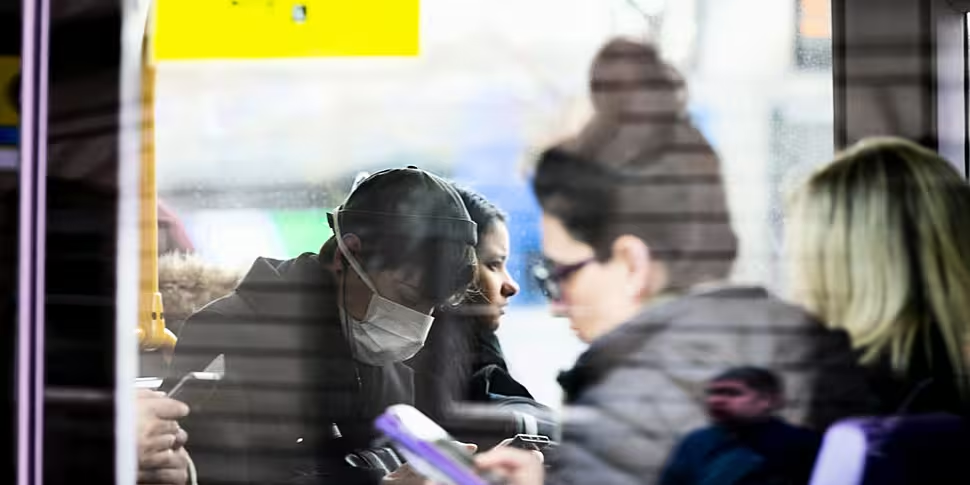The World Health Organisation special envoy on COVID-19 has appealed to Irish people to wear face coverings on public transport.
Dr David Nabarro told Newstalk Breakfast: "Nobody wants to compel people to do particular things, it's much better if people themselves decide to do it."
But he said he believes these are necessary.
"There are people who work, driving vehicles or at the platforms of railway stations, who because of their occupation are necessarily in contact with perhaps several hundred people a day and they may well be exposed because an individual may not know that they have COVID.
"They might be at the very earliest stage of their infection".
"It's the people with whom we're in contact that we need to worry about the most.
"We ourselves of course we can make decisions about ourselves and we can decide how much risk we're prepared to take.
"But the person who's serving us, looking after us, caring for us, cleaning for us: they're the ones who are most at risk".
"I think there is an argument for it just simply because of the statistics we're seeing of people who are most at risk".
"Over the next few days, certainly, and perhaps even over the next week or two, I'd really appreciate if people could just say 'well I've got to get used to doing this' - until we can be certain that we're not having this COVID as a threat for people, particularly poorer people".
On the two metre versus one metre social distancing, he said: "Each recommendation that's given by public health experts is based on risk.
"We do know that the distance that droplets travel when you cough or sneeze is somewhere between one metre and perhaps one and a half metres usually".
"If you work on a shorter distance when you're using physical distancing, that can in turn increase the possibility of risk".
On the virus itself, Dr Nabarro said: "Certainly I would say that Ireland has managed to move forward with containing this COVID and as you've got really a very small number of new cases being reported, there is a suggestion that you're moving to the point where you can say there really is very little virus in the country."
"In every single situation where you're trying to control outbreaks, there's always a balance to be struck.
"Ideally you want to get to zero and stay at zero, like New Zealand has done, but there are practical issues that you have to take into account.
"One is the border, two almost certainly there are still pockets of virus that will suddenly emerge and you have to be able to deal with it.
"So my advice, based on what I'm seeing around the world, is just make sure that you've got the strongest possible community level defenses against this virus that you can put in place.
"Ensure that you're really keeping an eye on those locations where you know the risk is greatest, like residential care for old people or factories where people are very closely bunched together.
"And then loosen up some of these lockdown regulations, so that the economy starts again - but keep a very eagle eye open for new cases appearing, and make certain that you can deal with the outbreaks very quickly and efficiently.
"I think that's the new normal that we're all going to have to live with for the coming weeks and months."









